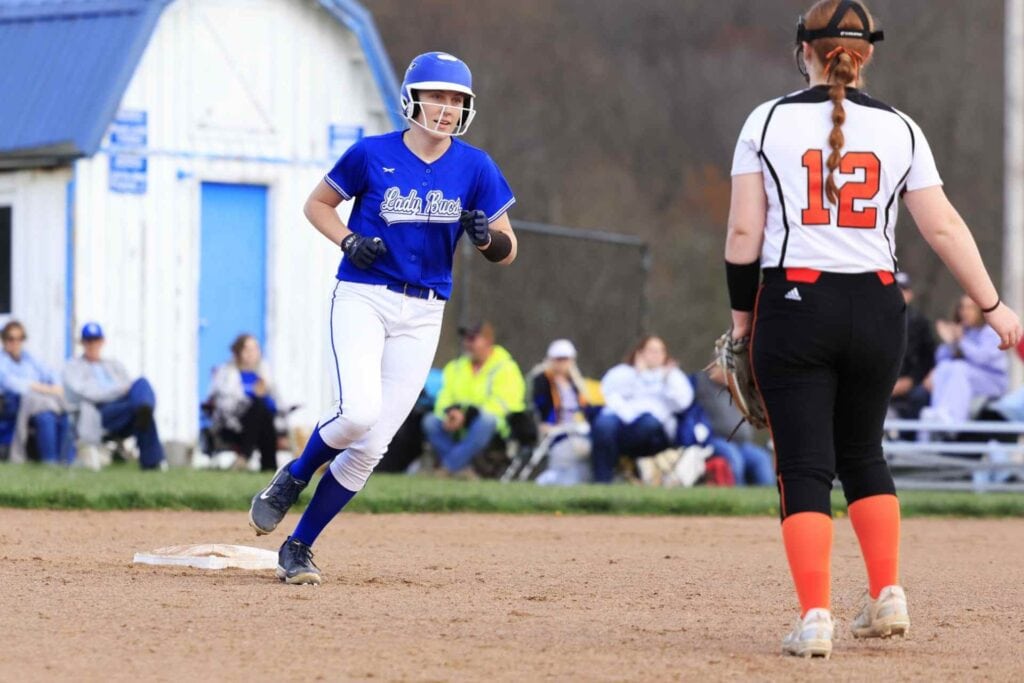BUCKHANNON – Upshur County doctors and local health care officials are sounding the alarm about a bill the West Virginia Legislature is considering that would make it easier for parents to send their children to public schools without receiving standard childhood vaccinations.
Senate Bill 535 would create religious and philosophical exemptions for school attendance vaccinations, including immunizations for measles, mumps and rubella; meningitis; pneumococcal (pneumonia); Haemophilus influenzae type b, or Hib; hepatitis B; tetanus, whooping cough and diphtheria; and polio.
Currently, under West Virginia law, a child may be exempted from school attendance-related immunizations due to a documented medical condition. However, Senate Bill 535 would expand that to allow for nonmedical exemptions, remove provisional enrollment for immunization requirements and remove the medical exemption review process.
Dr. Danielle Ware, D.O., who practices family medicine with WVU Medicine St. Joseph’s Hospital’s Rural Health Clinic, and retired longtime family physician Dr. Gerard O’Loughlin say the potential consequences of the bill passing could be dire, especially for children with existing medical conditions.
“There are people who out there who are immunologically deficient, and they can’t always get all the shots, so they depend on everyone else around them to get the immunizations,” O’Loughlin said. “They would be at high risk. You’re having people make decisions that are uneducated – decisions that are just plain stupid – and a baby can’t make a decision for themselves.”
“If you’re an adult and you decide not to get a flu shot, more power to you, but [people] aren’t being good parents if they don’t give [their children] shots,” O’Loughlin added. “[The parents] got their shots. I just think it’s kind of crazy to do this; we’re going backward in time.”
Ware said vaccines are safe and effective.
“I think Polio is a great example because a lot of people still living have memories of it causing a lot of disability and death,” Ware said. “We have eradicated it essentially because of the vaccine, so I think that’s the big success story. But in children, we’ve also had a significant drop in the death rate of babies from the pneumococcal vaccine and the Hib vaccines because these caused infectious bacterial illnesses like meningitis, pneumonia, and things that babies died from before — and we hardly see that anymore.”
In a letter Ware penned to Sen. Robert Karnes, R-11, and Sen. Patrick Martin, R-12, both of whom are sponsoring the bill, she outlined the fallout that could follow should the bill become law.
“The laws West Virginia has in place that require standard childhood vaccinations in all students attending public school are necessary and supported by the evidence that widespread vaccination prevents outbreaks of these diseases,” Ware wrote. “Should fewer and fewer children receive vaccines, we will inevitably end up with increasing numbers of illnesses from these diseases – which means missed days of school/work, increased healthcare utilization, increased hospitalizations, and unfortunately in some cases severe illness and death. Medical exemptions are the only legitimate reason to not receive vaccinations.”
“There are no religious beliefs that deny children’s right to vaccines, and personal preference does NOT constitute a legitimate reason to be exempt from vaccines,” her letter continues.
Ware said Wednesday that short-term outbreaks aren’t the only potential consequences.
“In the near future, not vaccinating could lead to acute illness, and we’re going to see that in an increase in hospitalizations of children,” she said. “But some of these illnesses have had very scary long-term effects that could come up years down the road, and we wouldn’t see that until potentially years or decades from now. And we’re not sure what those after-effects are going to be because we haven’t seen these illnesses in a long time.”
O’Loughlin cautioned residents to critically examine where they source their information about vaccinations.
“We’re trained and experienced, and some of the places people get their information from may not even be legit,” he said.
Dr. Victoria Strick, the St. Joseph’s Rural Health Clinic Medical Director, said doctors have a duty to stand up for their patients, especially children.
“Vaccines are medically and scientifically proven safe and effective,” Strick said. “Creating a bill that allows exemptions for no medical reason can cause a dangerous environment and negative outcomes for our pediatric population. Our job as physicians is to advocate for our patients, regardless of age. If we don’t speak up for these patients, who will?”
St. Joseph’s Hospital president and CEO Skip Gjolberg said the legislation could eventually lead to death or permanent disability for many children, should it pass.
“It seems like we are going back in time to when we didn’t have these tools,” Gjolberg said Wednesday. “When these childhood immunization tools were developed, they were viewed as gifts that were saving our children — and now, we’re going to potentially not use them? It befuddles me that people would even consider it when polio and meningitis are fatal and other diseases can be fatal. Really, I can’t even believe we’re having this conversation.”
Gjolberg said he’s not aware of any religions in the U.S. that ban adherents from receiving childhood immunizations.
“The legislators that are supporting this, I think, are using religion as a way to get a wedge in, but there’s no religion that has a prohibition against childhood immunization,” he said. “Having a philosophical exemption is just kicking the door wide open for anyone to say, ‘I don’t want to take my kid to get vaccinated.’”
The bill as it’s currently drafted states, “Notwithstanding any other provisions in this code, any child whose parents present a letter stating that a child cannot be vaccinated for religious or philosophical reasons shall be granted an exemption.”
Gjolberg also addressed concerns surrounding the side effects of childhood immunizations, saying it’s key to look at the overall impact on society.
“There could be negative side effects with any vaccine, but if you look at what these diseases do to people if they run rampant, it’s like saying that you shouldn’t be required to wear a seatbelt because if your car catches on fire, you can’t get out of the car 1 in a million times,” he said. “But for the 999,999 other people, seatbelts save their lives.”
Gjolberg urged residents to contact their legislators with concerns about the bill, saying grassroots efforts do have an impact.
“We want to protect kids, we want to protect teachers, and if we have outbreaks, they typically occur where people gather, like public schools,” he said. “I would encourage people to call and email their legislators because we’re seeing some success with parents calling their senators or legislators. The grassroots advocacy seems to be working; it seems to be having an effect.”
When reached for comment, Karnes sent an email to My Buckhannon Thursday explaining his rationale for sponsoring the legislation.
“I sponsored the bill because I believe freedom is an important consideration, particularly religious freedom,” Karnes wrote. “I don’t question that vaccines can be effective. Forty-four states out of 50 allow this choice and none of them are below 90% vaccination rates for most childhood vaccines for school children which is well above ‘herd’ immunity rates.
“As we saw with the mRNA Covid vaccines, many vaccines are not effective and often cause damage. In this case myocarditis or scarring of the heart muscle. And still it is being pushed upon adolescents with extremely low Covid morbidity risks. When the data clearly shows vaccines do cause harm for some, informed consent, or choice, is the only ethical position.”
Senate Bill 535 does not apply to Covid vaccines, which are not required for public school children.
A note at the end of bill’s current draft states that the public has a right to be free from communicable diseases but implies that right doesn’t trump parents’ decision-making rights.
“The public has a right to be free from communicable diseases, but a parent or guardian has the right to raise a child according to his or her religious and philosophical beliefs,” it says.












